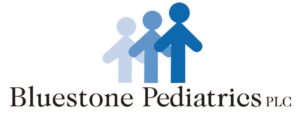
Breastfeeding
How do I know my baby is getting enough?
During the first few days of life your baby is ingesting colostrum which is very low volume but nutrient rich, so you may not notice a lot of swallowing. However, after the third to fifth day your milk should be in and the infant should start swallowing after an initial 6-10 quick sucks and then when your milk has let down after every one to two sucks. You may also see some milk around her lips or dripping from your nipple. After the baby has nursed he/she should be content. If he/she continues to fuss try burping the baby, cuddling and soothing or returning to the breast to nurse longer. In the first few weeks it is important to feed on demand because your baby will be going through frequent growth spurts. It is also important to wake the baby for feeds and not let them sleep longer than four hours until your pediatrician informs you it is okay. Monitoring wet diapers and bowel movements is another way to determine how much the baby is getting in. A newborn breastfed baby should have one wet diaper for each day of life up to day four. After the fourth day of life the baby should have at least four wet diapers a day. Quantity of bowel movements is not as important as consistency of bowel movements. The first two days of life the stool is going to be a tarry black this should transition to brownish green to greenish yellow to a seedy yellow over the next four to five days as your milk comes in. A breastfed baby after milk supply is established often has a yellow seedy bowel movement during or after each feed until they are 6-8 weeks old. Your pediatrician will also be closely monitoring your infants weight gain to ultimately determine if your baby is getting enough. If you have concerns about your baby’s weight gain contact your pediatrician.Formula Supplementation
Formulas are manufactured these days to mimic breastmilk as closely as possible, however it is impossible for them to do so perfectly. There are many instances that may arise where supplementation with formula may be necessary whether it be diminished supply due to going back to work or a premature infant with poor weight gain. Discuss with your pediatrician the best formula to supplement with for your baby. It is still best to try to give as much breastmilk as possible and supplement with formula only when necessary. There are rare instances when breastfeeding is not recommended so if you develop an illness or have to be on a medication please contact your pediatrician to discuss if it is okay to continue breastfeeding.Engorgement
Engorgement occurs when the breasts become very full, often a few days after birth. This is painful and there are measures you can take to relieve the discomfort and help the baby nurse easier.- Feed frequently, alternating breasts and using different positions
- Heat a cloth in the microwave or dryer and put it on your breasts
- Place raw cold cabbage leaves on your breasts
- Take a hot shower and let the water hit your back as you gently express milk
- Express milk before a feeding if the baby is having a hard time latching. You can express milk by a pump or manually.
Breastfeeding Resources
Toll-Free Information
- International Academy of Compounding Pharmacists (for a local compounding pharmacist to provide advice about medications): (800) 927-4227
- La Leche League: 800-LA LECHE (800) 525-3243
- Medela, Inc. (baby scales, breast milk freezer bags, breast pumps, breast shells, lanolin, Supplemental Nursing System): (800) 435-8316
- The National Association of Postpartum Care Services: (800) 45-DOULA
- Nurture Parenting Products (Yummy Mummy nursing clothing): (888) 301-2266
Internet Resources
- American Academy of Pediatrics: http://www.aap.org – Information on breastfeeding, pediatric medicine and related issues.
- Ask the Doctor/Maternal & Child Forum: http://www.medhelp.org – Nurses and doctors from Detroit’s Henry Ford System answer breast feeding and child care questions.
- Breastfeeding Mothers’ Support Group: http://www.members.tripod. com/~bmsg/. Based in Singapore, with advice relevant for moms everywhere.
- Breastfeeding advice group: http://www.parentsplace.com/cgi-bin/objects/lactation/bf164.data– Articles and information about breastfeeding problems and questions.
- Breastfeeding advice: http://www.onelist.com/subscribe.cgi/breastfeeding
- Breastfeeding information, articles, activism: http://www.ProMoM.org (Promotion of Mother’s Milk)
- Breastfeeding information, articles, parenting advice: http://www.compleatmother.com
- Herbal milk-boosters and other lactation aids: http://www.breastfeedinghelp.com
- La Leche League: www.lalecheleague.org – La Leche League’s Web page.
- Medical advice about breast inflammations/infections, etc.: www.obgyn.net
- Starting solid foods: http://www.parentsplace.com/cgi-bin/boards/startingsolids
Books
- The Complete Book of Breastfeeding by Marvin S. Eiger and Sally Wendkos Olds (Workman)
- Medications and Mother’s Milk by Thomas W. Hale (Pharmasoft Medical Publishing)
- The Nursing Mother’s Companion by Kathleen Huggins (Harvard Common Press)
- Breastfeeding Your Baby by Sheila Kitzinger (Knopf)
- The Womanly Art of Breastfeeding by the La Leche League International (Plume)
- Breastfeeding and the Working Mother by Diane Mason et al (St. Martin’s Press)
- The Breastfeeding Answer Book by Nancy Mohrbacher (La Leche League)
- Dr. Mom’s Guide to Breastfeeding by Marianne Neifert (Plume)
- Breastfeeding Your Baby: A Practical Guide For the New Mother by the Nursing Mother Council of the Boston Association for Childbirth Education (Avery Publishing Group)
- So THAT’S What They’re For! by Janet Tamaro (Workman)
- The Fussy Baby: How to Bring Out the Best in Your High-Needs Child by William Sears (La Leche League International)
ADDRESS
Bluestone Pediatrics
4059 Quarles Court
Rockingham, VA 22801
PHONE
Phone number: (540) 437-4800
Fax #: (540) 437-9012
Billing Office: (540) 434-1512
After-hours and weekend emergency phone number: (540) 432-7311
APPOINTMENTS
CHECK-UPS AND SICK VISITS
MONDAY – FRIDAY
8:00 A.M. – 5:00 P.M.
WALK-IN HOURS
ACUTE ILLNESS ONLY:
MONDAY — FRIDAY
8:00 AM — 9:00 AM
SATURDAY
9:00 AM — 11:00 AM
SUNDAY
9:00 AM — 11:00 AM
© 2024 Bluestone Pediatrics | All Rights Reserved | Site design KWGraphicsandWeb